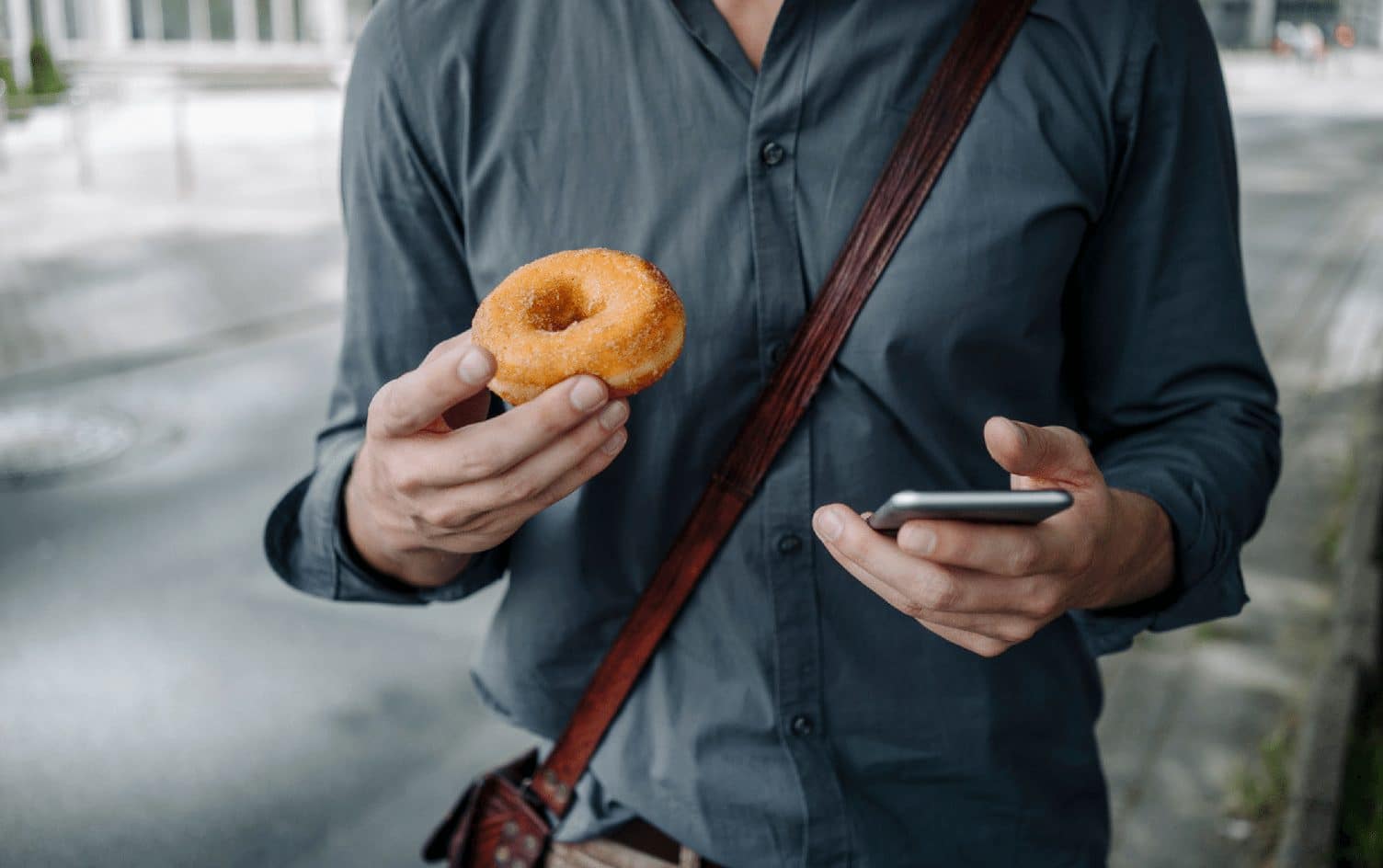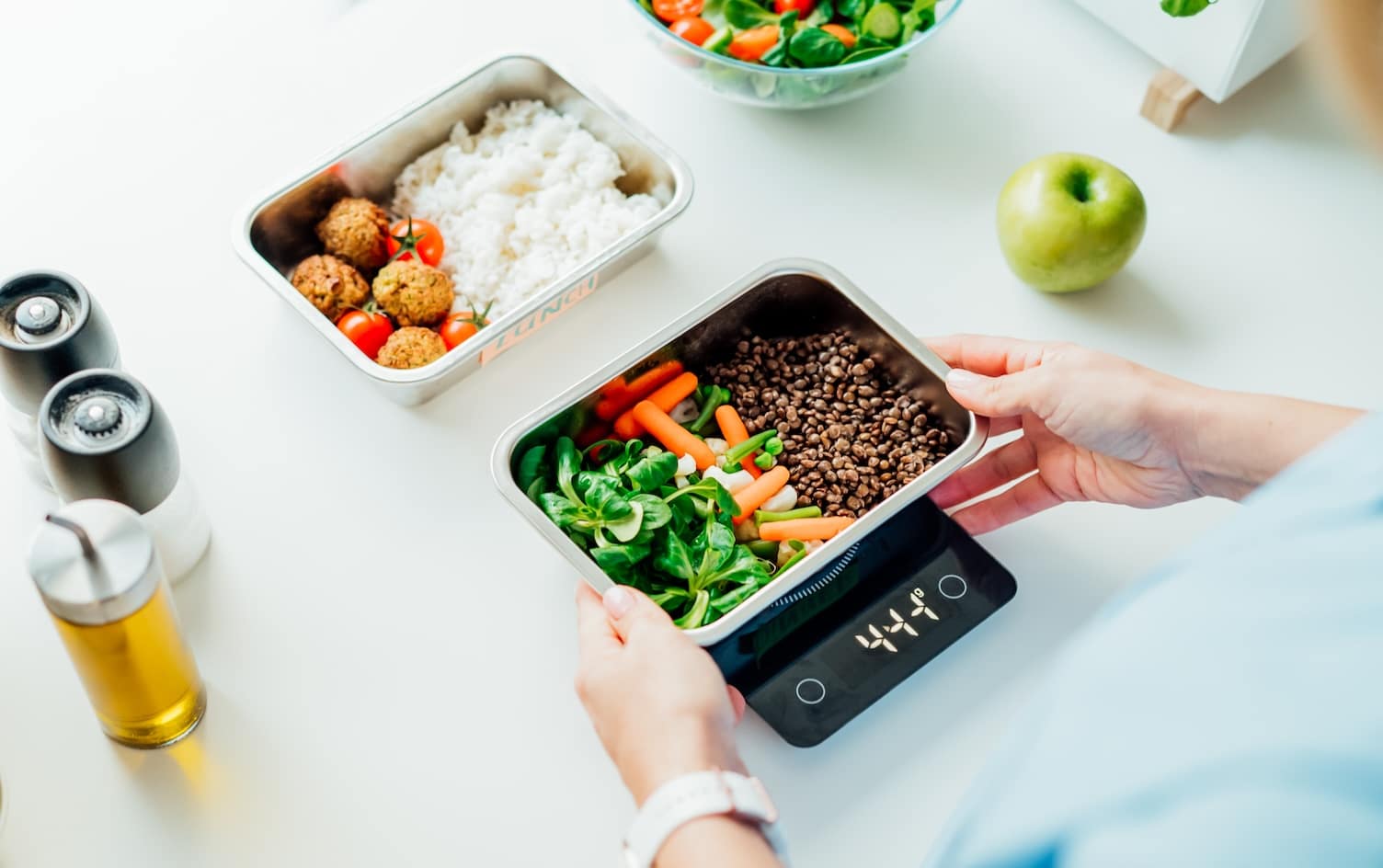Overeating is a challenge for many people for many reasons, in particular because food tastes good. The problem with overeating is it can prevent people from achieving their weight-loss goals in a timely manner. One of our readers, Chelsea K., reached out on Facebook, to ask how to break the cycle of overeating:
[perfectpullquote align=”full” cite=”” link=”” color=”HEX 0073bb” class=”” size=””]”I have serious problems with self control. I feel in control when I fast, but if something sets me off and I eat, suddenly I can’t stop and I end up eating way more than if I could just eat small portions consistently. I guess my question is:
How do you stop the cycle, how do you eat without overdoing it and how can you eat without feeling shame and feeling out of control?”[/perfectpullquote]
These are common hurdles many of us experience. Oftentimes, people write it off as a failure of #selfcontrol, but it’s not.
Let’s be real: If losing weight was as simple as eating less and moving more, the diet industry would be out of business. Too often, we’re sold diet quick-fixes with no emphasis on how to maintain success. Instead, our body is constantly changing as a result of getting older, having a family and dealing with work stress.
The first step toward positive change is recognizing there’s an issue you want to fix, like an unhealthy relationship with food.
Here are some realistic tips to get you headed in the right direction:

Learning to accept your body should be a top priority no matter your weight goals. By doing so, you’re less likely to feel ashamed and guilty after eating. Remember: Negative emotions can actually harm your progress, especially if you’re prone to emotional overeating.
Remember to workout and eat well because you love your body, not because you hate it.
READ MORE > 10 WAYS TO (FINALLY) ACCEPT YOUR BODY

This refers to any food or mood that can lead you to overeat in an out-of-control state. Trigger foods are unique to everyone, but the common ones are generally delicious but not nutritious foods like pizza, ice cream, chips, candy and cookies. It’s good to set boundaries by avoiding these foods until you learn a balanced way to consume them.
Keep in mind that a trigger food is not a “craving” even though they may be used interchangeably. A craving is a food you really want to enjoy, get a lot of satisfaction off said enjoyment and know when to say, “enough.” Anxiety, boredom or distraction can push you to overeat on autopilot. Being aware of your triggers is the first step toward breaking the cycle. (You can use the “Notes” section in your MyFitnessPal food diary to jot down your triggers.)

Plan three snacks and three light meals for a total of six meals daily. Don’t go for more than 2–3 hours without eating. Keep in mind, though, that there are no hard-and-fast rules for how often you should eat. Just do what works for you. Sure, intermittent fasting can be helpful for weight loss, but it doesn’t work for everyone. For some people, being overly restrictive with food can even trigger overeating.

With so many distractions — from social media to Netflix binges — many of us eat mindlessly, polishing off lunch in front of our screens or wolfing down snack bars before an important meeting. Mindful eating teaches you to savor your food and listen to your body’s cues. Mindful eating is how you eat versus what you eat, so it isn’t a diet plan.
READ MORE > HOW MINDFUL EATING TECHNIQUES CAN AMP UP YOUR WEIGHT LOSS

No matter what your problems are, know that other people have similar struggles. You are not alone in this — so don’t be afraid to reach out. Confide in those you trust and in experts who can help coach you through these issues.
Hopefully these tips help you form a better relationship with food and with your own body. None of this happens overnight, so it’s important you remain kind and patient with yourself.





